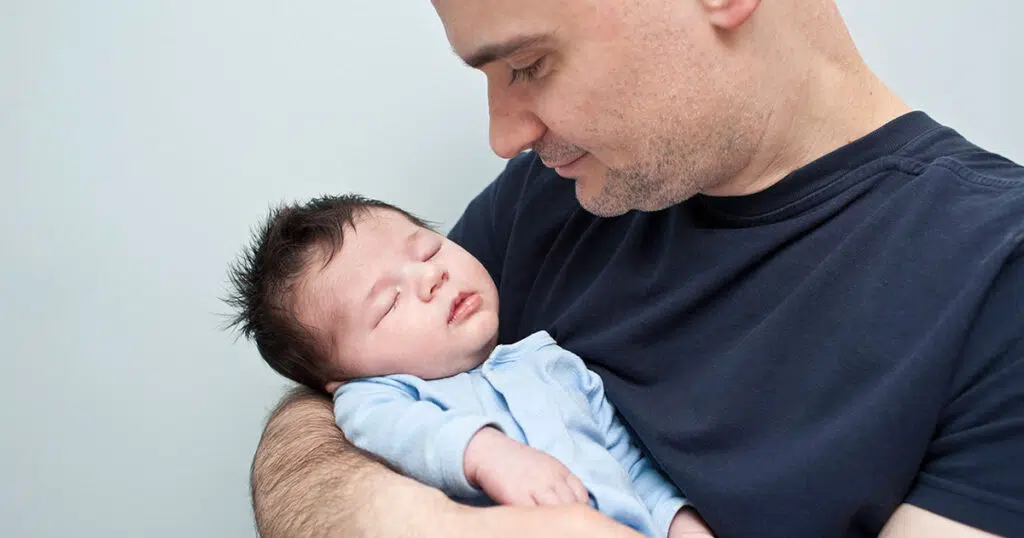
Study Finds First-time Fathers Lose Brain Matter After Birth of Children
A new study shows first-time fathers may lose a percentage or two of cortical volume in the brain following the birth of their child — but that’s not a bad thing.
Published in the journal Cerebral Cortex, the new research echoes findings that a mothers’s brain changes during her first pregnancy.
As explained in the study, “Emerging evidence points to the transition to parenthood as a critical window for adult neural plasticity. Studying fathers offers a unique opportunity to explore how parenting experience can shape the human brain when pregnancy is not directly experienced.”
Back in 2016, a first-of-its-kind study was released and revealed that the architecture of women’s brains changes dramatically during their first pregnancies. It was discovered areas of grey matter involved in the processing and responding to social signals shrank.
The changes to fathers’ brains mainly occurred in an area known as the ‘default mode network,’ which is associated with parental acceptance and warmth.
Although it might initially sound negative, scientists explain the apparent consolidation of cells indicates a refinement of the brain that makes connecting with a child more significant and natural.
Researchers arrived at that conclusion by studying the magnetic resonance imaging (MRI) information from 40 heterosexual first-time fathers, half from Spain and half from the United States and a control group of 17 men from Spain without children.
Said the study: “We tested whether the transition into fatherhood entailed anatomical changes in brain cortical volume, thickness, and area, and subcortical volumes. We found overlapping trends of cortical volume reductions within the default mode network and visual networks and preservation of subcortical structures across both samples of first-time fathers.”
The study was a collaboration between research teams at the Instituto de Investigación Sanitaria Gregorio Marañón in Madrid, the University of Southern California in Los Angeles and the Autonomous University of Barcelona.
The fathers in Spain underwent brain scans before their partners became pregnant and again a few months after their children’s births. Those in the U.S. undertook scans during the mid-to-late stages of their partners’ pregnancies and then seven to eight months post-birth.
The study compared compared those MRI results against the scans of the control group and found signs in the new fathers of brain plasticity in their cortical gray matter, the area responsible for social understanding, and pronounced volume reductions of the visual system’s cells.
“We found overlapping trends of cortical volume reductions within the default mode network and visual networks and preservation of subcortical structures across both samples of first-time fathers, which persisted after controlling for fathers’ and children’s age at the postnatal scan,” wrote the researchers in their study.
“This study provides convergent evidence for cortical structural changes in fathers, supporting the possibility that the transition to fatherhood may represent a meaningful window of experience-induced structural neuroplasticity in males.”
Elseline Hoekzema, a neurologist at Leiden University in the Netherlands and the study’s principal author, said when the study was first published. We certainly don’t want to put a message out there along the lines of ‘pregnancy makes you lose your brain…Gray matter volume loss can also represent a beneficial process of maturation or specialization.”
Both areas of the brain affected by the womens’ pregnancies were those that could help fathers connect more efficiently and deeply with their newborn infants.
The results indicate that not only women have an increased tendency to change in order to adapt to their infant’s arrival, but men are equally capable of experiencing body alterations that can ultimately help them play equally important roles in their children’s lives.



